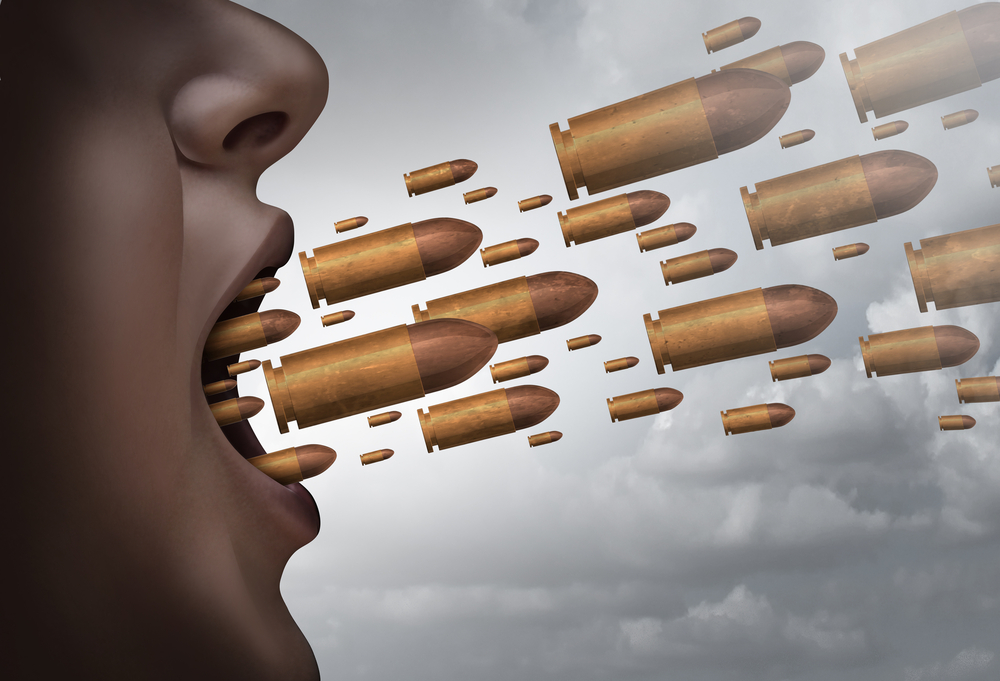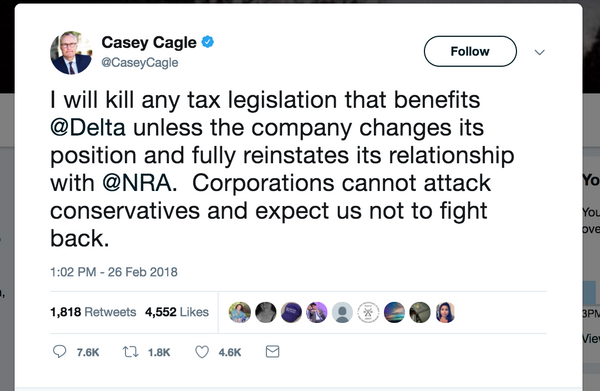Against the backdrop of an ever-faster news cycle, 2018 has featured brands and personalities who seized unexpected opportunities to generate positive PR.
By the same token, 2018 has brought public disasters for others. Which stories captivated us in 2018, and who came out where? Here’s part one of my list for 2018 PR Winners and Losers. Let’s get the bad news out of the way first.
Facebook just can’t catch a break
It’s on every communications professional’s “worst” list. In 2018, past misdeeds caught up with Facebook. After the Cambridge Analytica scandal exploded, CEO Mark Zuckerberg embarked on an apology tour, capped off with a cautious, contrite, and highly rehearsed performance before a Senate Committee in April. It was a detente of sorts, but the calm didn’t last. In November, The New York Times broke a blockbuster story based on three years’ worth of insider accounts of Facebook’s handling of the scandal. Its strategies were right there in the title — Delay, Deny, and Deflect. Even COO Sheryl Sandberg, who some have seen as a future presidential candidate, was badly tarnished by the piece. At a time when Big Tech’s reputation has plummeted, Facebook is a convenient scapegoat for an entire industry, but many of its problems are of its own making. There have been too many apologies that later rang hollow, and its bank of good will is nearly empty.
The NRA retrenches
Though controversial, the National Rifle Association has long been considered an indomitable PR force. Its aggressive stance on any and every issue related to gun ownership rights, coupled with its lobbying clout, made it a feared competitor. But 2018 brought a sharp reversal in its fortunes and its public image. The problems started with the activism that grew out of the Valentine’s Day shooting at Marjorie Stoneman Douglas high school. The Parkland students mounted a PR-savvy campaign to register young voters and focus attention on sensible gun legislation. What’s more, 2018 ended with a guilty plea by Maria Butina, the young Russian who allegedly tried to influence U.S. policy by infiltrating conservative groups, most notably the NRA, by posing as gun-rights activist in her own country. The story’s not over yet, but a willingness to stake out a middle ground on the firearms issue might have softened its critics. But as it stands now, the NRA will end the year with an eroding membership and declining revenues.
CBS has a #metoo moment (again)
The Tiffany network was again rocked by an unfolding scandal related to workplace sexual harassment. This time it claimed the job of network chief Les Moonves, costing Moonves his $120 million severance package and the network its reputation. In fact, CBS barely had a chance to recoup after its most recent #metoo scandal. The revelations that Moonves actively obstructed the investigation into claims that he sexually harassed and even assaulted employees came nearly a year after CBS fired Charlie Rose for sexual harassment. Worse, it seems that at least one CBS Board member knew about the allegations but said nothing. The mess just goes to show that most secrets don’t stay hidden forever, and that corporate cover-ups rarely stay that way. It’s usually best to expose all the bad news at once.
Scandal engulfs McKinsey
2018 was a regular annus horribilis for the blue-chip consulting firm. McKinsey was embroiled in a corruption and cronyism scandal in South Africa that nearly wiped out its business in the region. It even returned the $70 million in fees earned for the engagement due to widespread outrage over the “looting” of the South African economy. In June, the consulting giant announced it would no longer work for Immigration and Customs Enforcement (ICE) after the relationship became controversial among its own staff. A third reputation hit came in October with yet another investigative piece about its work in Saudia Arabia. Though it broke no laws, its representation of controversial clients has at best shown an inconsistent adherence to its own stated corporate values.
Tesla hits a wall
What to do when a company’s greatest asset – its founder – is also its biggest PR liability? That’s the dilemma Tesla faced this year when founder Elon Musk made news with a series of erratic moves in two-month period. In July Musk lashed out at one of the divers who helped rescue 12 Thai soccer players from flooded caves this summer, precipitating a wave of negative stories and a libel suit. Weeks later, he claimed in a series of tweets that he had secured funding to take Tesla private, startling investors and employees and triggering an SEC action and more litigation. As if that weren’t enough, in early September, Tesla shares nosedived and two senior officers resigned just hours after Musk smoked marijuana on a live web show. Despite its founder’s shenanigans, however, Tesla ended the year strongly, so here’s hoping it can stay on track in 2019.
Papa John’s feels the heat
Mercurial founders aren’t only in technology startups. Scandals burned pizza chain Papa John’s after founder John Schnatter’s use of a racial epithet during a phone meeting that was meant to be a media prep call, of all things. Schnatter was ousted by Papa John’s board, but he sued his former company, and the result has been a mess of toxic PR for the brand. Apparently company franchisees are divided about Schnatter’s status, and his ouster precipitated more ugly disclosures, including at least two NDAs signed by women who accused the pizza king of sexual harassment.
“I am the American dream,” Schnatter once said in describing his company’s success. But in 2018, his behavior was a nightmare for the brand he created.
Kevin Spacey is “frankly” creepy
Thought we could close out 2018 without another #metoo moment? Think again. On Christmas eve, actor Kevin Spacey released a very strange video that may – or may not – have been a response to disturbing sexual assault allegations against him. His “frank” remarks were delivered in full villain mode as “House of Cards” antihero Frank Underwood and have generated over seven million views (more than any single season’s audience of the show). Yet it was not a great PR move. In the video, Spacey seems to be urging his fans to look at his offenses the same way they do the murderous deeds of the character he played. Judging by the reaction on social media, most don’t buy it. Also caught in the turmoil was Netflix, which almost certainly had no advance warning of the video.
Mnuchin makes the wrong call
Another late-breaking PR crisis happened on when Treasury Secretary Steve Mnuchin attempted to calm financial markets after the government shutdown and a wildly gyrating DJIA. In a letter posted on Twitter, Mnuchin reported that he had held a call with major bank CEOs and denied a “brewing economic crisis no one knows about,” as Salon’s Matthew Rozda put it. The letter stated that “the (bank) CEOs confirmed that they have ample liquidity…for lending to consumer, business markets, and all other market operations.”
The problem, of course, was that no one was really worried about a liquidity crisis, so the call seemed like a panic move and backfired badly, helping to send the stock market spiraling further downward. It’s the classic “never deny a negative” rule; if you don’t want your target audience to worry about an unlikely development, try not to mention it.
Next up: PR Winners: The Best Stories of 2018


